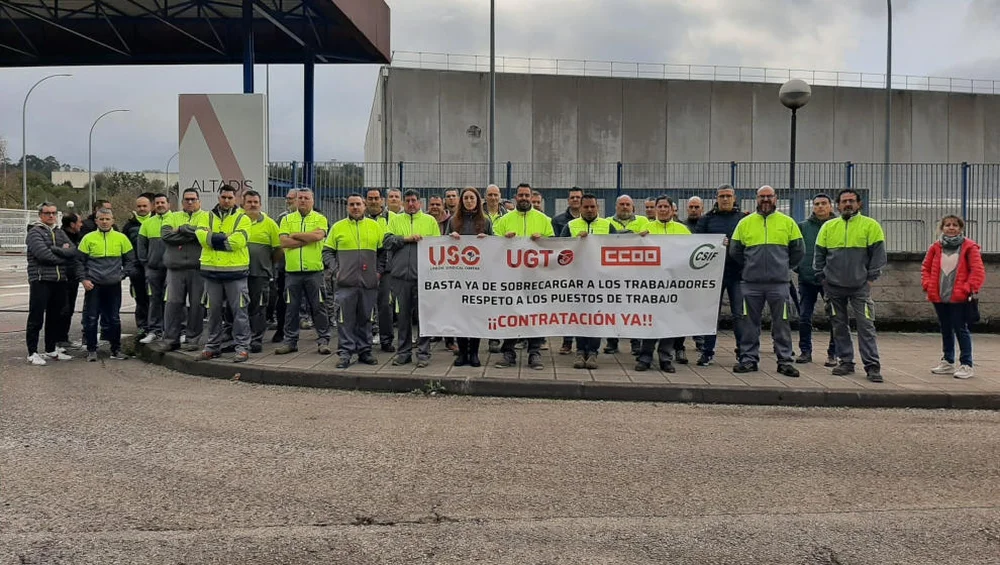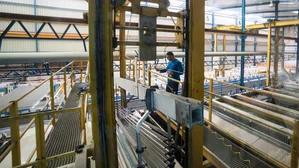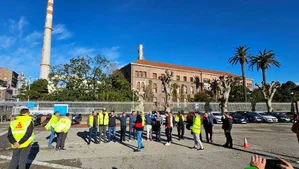Indefinite Strike at Altadis Cigar Factory in Cantabria, Spain Continues Amid Ongoing Negotiations

In the picturesque region of Cantabria, Spain, an indefinite strike by workers at the Altadis cigar factory in Entrambasaguas has entered a critical phase, with negotiations set to resume in the coming days.
Background of the Strike
The strike, which began on Tuesday, January 8, 2025, involves 135 factory workers who are members of the General Union of Workers (UGT) and other union organizations. The primary grievances include poor working conditions and severe understaffing, which have significantly impacted the well-being and productivity of the employees.
Worker Demands and Protests
Workers have been vocal about their demands, with thirty workers picketing the factory grounds, holding banners that read “Stop overloading workers Respect their work!” The strike highlights the long-standing issues of workload and staffing that have plagued the factory, leading to increased stress and health problems among the workforce.
Negotiation Efforts
Despite the ongoing strike, negotiations between the union representatives and the management of Altadis are scheduled to resume. These talks aim to address the core issues driving the strike, including better working conditions, adequate staffing, and improved workplace safety. The resumption of negotiations indicates a willingness from both sides to find a resolution, although the strike will continue until satisfactory agreements are reached.
Impact on the Community
The strike at Altadis not only affects the workers but also has implications for the local community in Entrambasaguas. The factory is a significant employer in the area, and any disruption can have ripple effects on the local economy. The community is watching the developments closely, hoping for a swift and fair resolution that benefits both the workers and the local economy.
Broader Context
This strike is part of a larger trend of labor disputes in Spain and across Europe, where workers are increasingly demanding better working conditions, higher wages, and improved benefits. Similar strikes have been seen in other sectors, such as postal workers in Germany and municipal workers in Turkey, highlighting the widespread concerns about worker rights and conditions.
As the negotiations at Altadis continue, the eyes of the labor community and local residents are on the outcome, hoping for a resolution that respects the rights and dignity of the workers involved.
Related Stories

Over 2,600 Aspirants Participate in Initial Public Employment Exams for 2023-2024 in Suffolk and Monroe Counties
Over 2,600 candidates vie for public sector roles in Suffolk and Monroe counties, marking a keen interest in civil service careers for 2023-2024.

Cantabria Leads in Creation of Indefinite Employment Positions Following Labor Reform
Cantabria leads Spain in creating stable jobs post-labor reform, setting a positive precedent for national employment stability and growth.

New Mediation Called in Solvay Logistics Strike in Spain
In a bid to resolve the ongoing strike at Solvay's Spanish logistics division, Orecla announces a new mediation session, aiming to reconcile worker demands with company operations.

Significant Changes in Labor Laws and Housing Regulations in Spain: What Expats Need to Know
Spain introduces major labor and housing law reforms, impacting expats with changes to temporary contracts, eviction procedures, and climate-related labor measures.

Spain Set to Implement Shorter Work Week Starting 2025
Spain to reduce its work week to 37.5 hours by 2025, aiming to improve work-life balance for 12 million employees, following an agreement led by Labour Minister Yolanda Díaz.